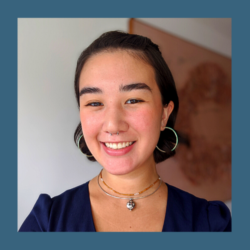Aug
27
2020
Written by Catherine Foley (Communications and Operations Associate)
SolidarityIs, in partnership with the Building Movement Project, is launching a five-week online movement education program for young activists that will take place in the fall of 2020. This training, which I am helping to coordinate with a team of dedicated people, would have been the ideal opportunity for me when I was a first-year college student in 2014. That was the year when a Staten Island grand jury decided not to indict Daniel Pantaleo, the police officer who held Eric Garner in a chokehold until he died.
I had just moved to New York City and was living alone for the first time (albeit with two strangers in a one-bedroom dorm). I was not as politicized or as driven for social change as I am now. I was not on Twitter, and Instagram was not what it is today – you certainly wouldn’t have seen the plethora of resources, news updates, or organizing tactics that are being shared these days. I also was not as tuned in as I could have been.
Yet when that decision was made, when I saw “no indictment” on the news, in my group chats, and in notices sent out through class listservs, I knew that it was an important moment. I felt angry and activated and connected to other people who felt the same. But I didn’t know what to do next. When my roommate and I looked out our window that same day, we watched as hundreds of people marched together in protest. It was an obvious action step and an opportunity to engage: we could use our bodies and our voices to show up in that moment.
I was young, angry, and unsure what I could do to help anyone or anything. I’m still young and angry, but I’m much better positioned now to enact and sustain social change than I was six years ago.
After marching in that protest, I went back to my dorm. I probably worked on a paper or some other assignment and went back to being a busy, distracted college student. I know I thought about Eric Garner and police brutality and systemic racism in the months and years after (it’s what led me to the work and the role that I’m in now), but back then I didn’t know how to incorporate social change efforts into my life and engage with movement building work in a sustainable way. I didn’t even know the terms “systems change,” or “transformative solidarity,” or “sustainability” in the context of social and political movements. I just didn’t have the knowledge, the frameworks, or the practices, even though I wanted to know and do more.
I also operated from a place of privilege. As a non-Black person of color, I have never experienced the discrimination, harassment, or violence of anti-Black racism. I have encountered discrimination and harassment based on my race (and still do), but I failed to see the through-lines and connections between my experiences and the experiences of other BIPOC folks. To borrow the language of BMP’s Senior Advisor, Deepa Iyer, I didn’t know my role in my social change ecosystem and I had yet to understand and tap into the power of cross-racial solidarity.
It’s also important to note that I didn’t gain this knowledge or come to these realizations all on my own. As many thought leaders and activists have said before: no one is born woke. I have learned a lot and I am still learning. I do wish that I had access back then to the resources, spaces, and mentors that I have now. I could have gotten to where I am today a lot faster, and without experiencing as much trauma, anxiety, and rage. Even so, there is more work to be done.
We often hear that we’re building a movement, not a moment. The value and truth of this statement has been made abundantly clear year after year, crisis after crisis, and “moment” after “moment.” We have seen people mobilizing in response to horrific events, like the murders of George Floyd and Breonna Taylor, and the more recent shooting of Jacob Blake. We have seen these moments woven into broader movements for racial justice and we have seen transformative solidarity practice in action as cross-racial and cross-movement building efforts have grown across the nation. It is clear that in order to build long-term, sustainable movements, we have to build connections. We have to educate and uplift each other, and we have to mobilize and act together.
In that same vein, I would like to share an opportunity for folks who may have been like me, who wanted to get involved but didn’t know where to start, or who maybe want to deepen their activism and social change efforts.
The Solidarity Semester, launching this September 2020, is a five-week virtual program that will train emerging, first-time activists and equip them with movement education, tools, and networks. In this moment of intense, overlapping crises (the COVID-19 pandemic, the uprisings, and the upcoming election), the Solidarity Semester will explore opportunities to deepen political and movement education and to provide pathways to action and activism. Learn more about the Solidarity Semester and how to register for the weekly sessions here.

